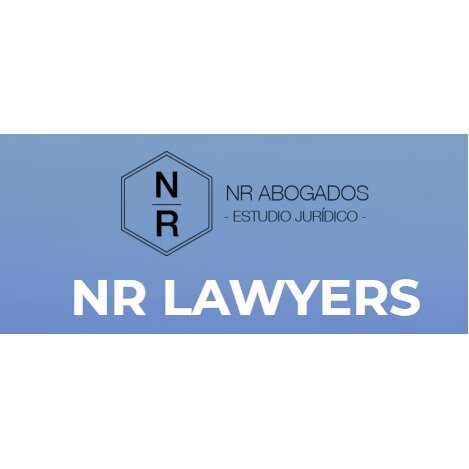Best Tax Lawyers in Argentina
Share your needs with us, get contacted by law firms.
Free. Takes 2 min.
Or refine your search by selecting a city:
List of the best lawyers in Argentina
About Tax Law in Argentina
Tax law in Argentina is a comprehensive legal field that encompasses various obligations for individuals and businesses regarding the payment of taxes. The Argentine tax system is primarily based on national, provincial, and municipal levels, with the imposition of taxes such as Income Tax, Value Added Tax (VAT), and the Gross Income Tax (locally known as “Ingresos Brutos”). The Argentine tax authority, Administración Federal de Ingresos Públicos (AFIP), is responsible for the enforcement and collection of national taxes. The complexities of navigating this system often necessitate professional legal assistance.
Why You May Need a Lawyer
There are several common situations in which individuals or businesses may require the assistance of a tax lawyer in Argentina. These include compliance issues with AFIP, disputes regarding tax assessments, tax optimization for businesses or individuals with complex financial situations, advice on international taxation for foreign investments or income, and guidance on property taxes and estate planning. A qualified tax lawyer can ensure legal compliance and help manage tax-related challenges efficiently.
Local Laws Overview
Argentine tax laws encompass a variety of statutes and regulations. Key aspects include:
- Income Tax: Levied on both individuals and corporate entities, with progressive rates for individuals and a flat rate for corporate income.
- Value Added Tax (VAT): A consumption tax placed on products, typically at 21%, with reduced rates applicable in certain scenarios.
- Gross Income Tax: A local tax applied on business activities, with rates varying by jurisdiction.
- Wealth Tax: Applied to resident individuals on worldwide assets and non-residents on assets located in Argentina.
- Social Security Contributions: Employers and employees are required to contribute to the system, which funds various social programs.
Frequently Asked Questions
What is the deadline for filing taxes in Argentina?
The tax filing deadlines in Argentina can vary, but generally, corporate taxes are due within five months following the end of the fiscal year, while personal income taxes have specific dates in April for filing.
How is tax residency determined in Argentina?
An individual is considered a tax resident if they spend more than 183 days in Argentina in a calendar year or if they have their main center of life interests in the country.
What are the penalties for late tax payments in Argentina?
Penalties for late tax payments include interest and fines calculated on the overdue amount, which may accumulate monthly until the debt is settled.
Why do I need to register with the AFIP?
Registering with AFIP is mandatory for individuals and businesses to comply with their tax obligations, access tax credits, and manage withholding statuses.
Are there any tax incentives for businesses in Argentina?
Yes, Argentina offers various tax incentives, especially in sectors like technology, renewable energy, and exports, which may reduce or defer tax liabilities.
Can foreigners invest in Argentine real estate, and what are the tax implications?
Foreigners can invest in Argentinian real estate, but they must consider property taxes, income taxes on rental income, and potential capital gains taxes upon selling the property.
How can I appeal a tax decision by the AFIP?
A taxpayer can file an administrative appeal with AFIP or take the matter to court if they disagree with a tax decision. This often requires legal assistance.
What types of transactions are subject to VAT in Argentina?
VAT applies to the sale of goods, provision of services, and import of goods into Argentina. Certain activities, such as food and medical supplies, may have reduced rates.
How can international companies reduce their tax burden in Argentina?
International companies can utilize strategies such as transfer pricing, tax treaties, and tax credits to mitigate their tax obligations in Argentina.
Is tax advice in Argentina confidential?
Yes, attorney-client privilege extends to tax advice from lawyers, ensuring confidentiality except in certain legally defined circumstances.
Additional Resources
For further assistance and information, you may consider reaching out to:
- Administración Federal de Ingresos Públicos (AFIP): The national tax authority for queries and clarifications.
- Professional Tax Consultants: Seek recognized accounting and tax consulting firms for tailored advice.
- Legal Books and Publications: Utilize books on Argentine tax law available in law libraries.
- Chambers of Commerce: Many have tax advisors and legal assistance for businesses navigating local tax regulations.
Next Steps
If you find yourself in need of assistance with tax matters in Argentina, consider the following steps:
- Research and Identify: Pinpoint specific issues or areas of concern related to your tax situation.
- Consult a Professional: Seek advice from qualified tax lawyers or accountants who specialize in Argentine tax law.
- Document Everything: Keep comprehensive records of your financial transactions and correspondence with tax authorities.
- Engage a Lawyer: For complex tax issues, engage a lawyer to represent you and manage interactions with tax authorities.
- Stay Informed: Keep abreast of any changes in tax legislation that may impact your obligations.
Lawzana helps you find the best lawyers and law firms in Argentina through a curated and pre-screened list of qualified legal professionals. Our platform offers rankings and detailed profiles of attorneys and law firms, allowing you to compare based on practice areas, including Tax, experience, and client feedback.
Each profile includes a description of the firm's areas of practice, client reviews, team members and partners, year of establishment, spoken languages, office locations, contact information, social media presence, and any published articles or resources. Most firms on our platform speak English and are experienced in both local and international legal matters.
Get a quote from top-rated law firms in Argentina — quickly, securely, and without unnecessary hassle.
Disclaimer:
The information provided on this page is for general informational purposes only and does not constitute legal advice. While we strive to ensure the accuracy and relevance of the content, legal information may change over time, and interpretations of the law can vary. You should always consult with a qualified legal professional for advice specific to your situation.
We disclaim all liability for actions taken or not taken based on the content of this page. If you believe any information is incorrect or outdated, please contact us, and we will review and update it where appropriate.
Browse tax law firms by city in Argentina
Refine your search by selecting a city.

















